
Senior Fellow & Director, Center on Opportunity and Social Mobility @AEICosm. Previously Exec Dir, Joint Economic Committee. Beatles fanatic. Personal account
How to get URL link on X (Twitter) App

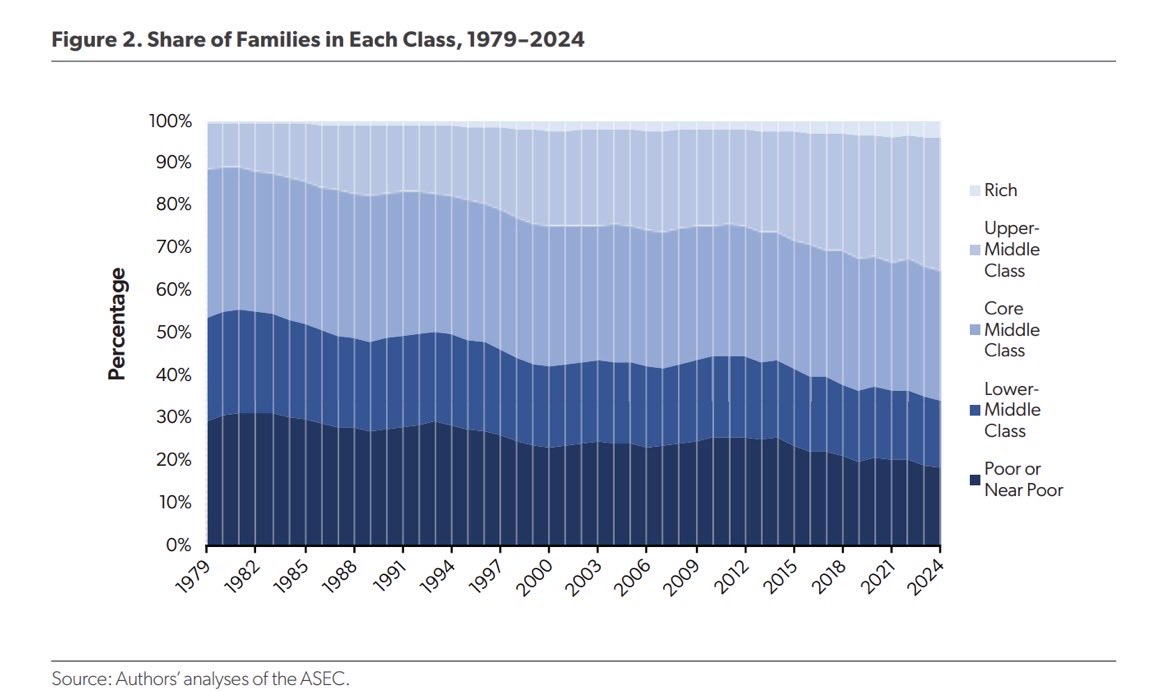

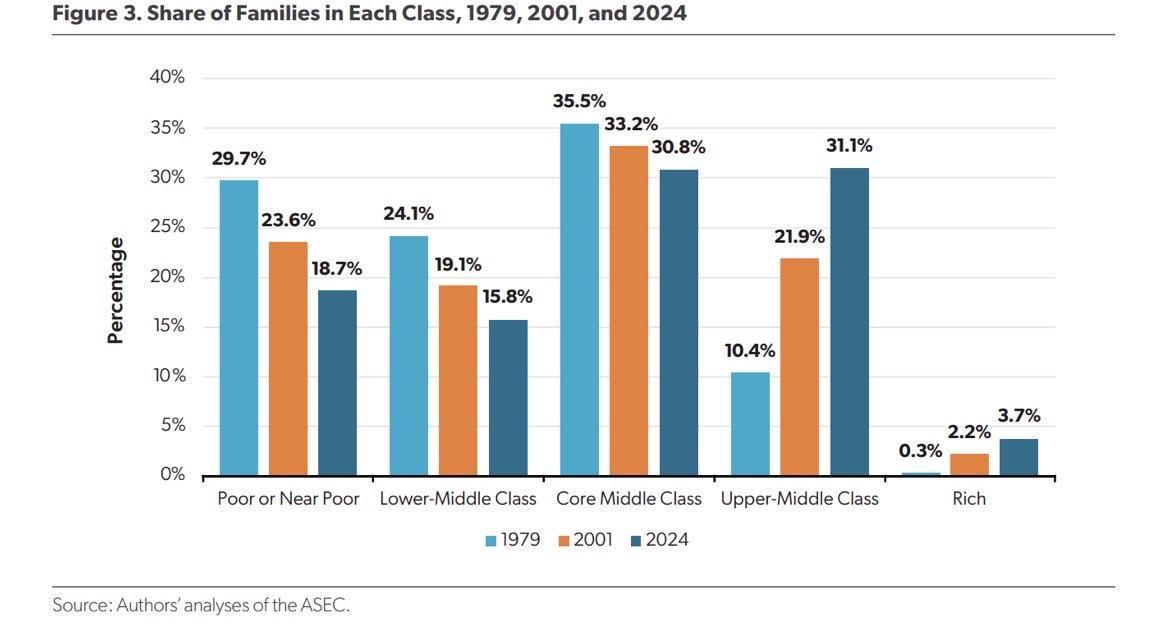

https://twitter.com/profplum99/status/1995516544156103114evaluate ourselves against other countries, determine who constitutes "the poor," determine the groups among which poverty is highest, etc.
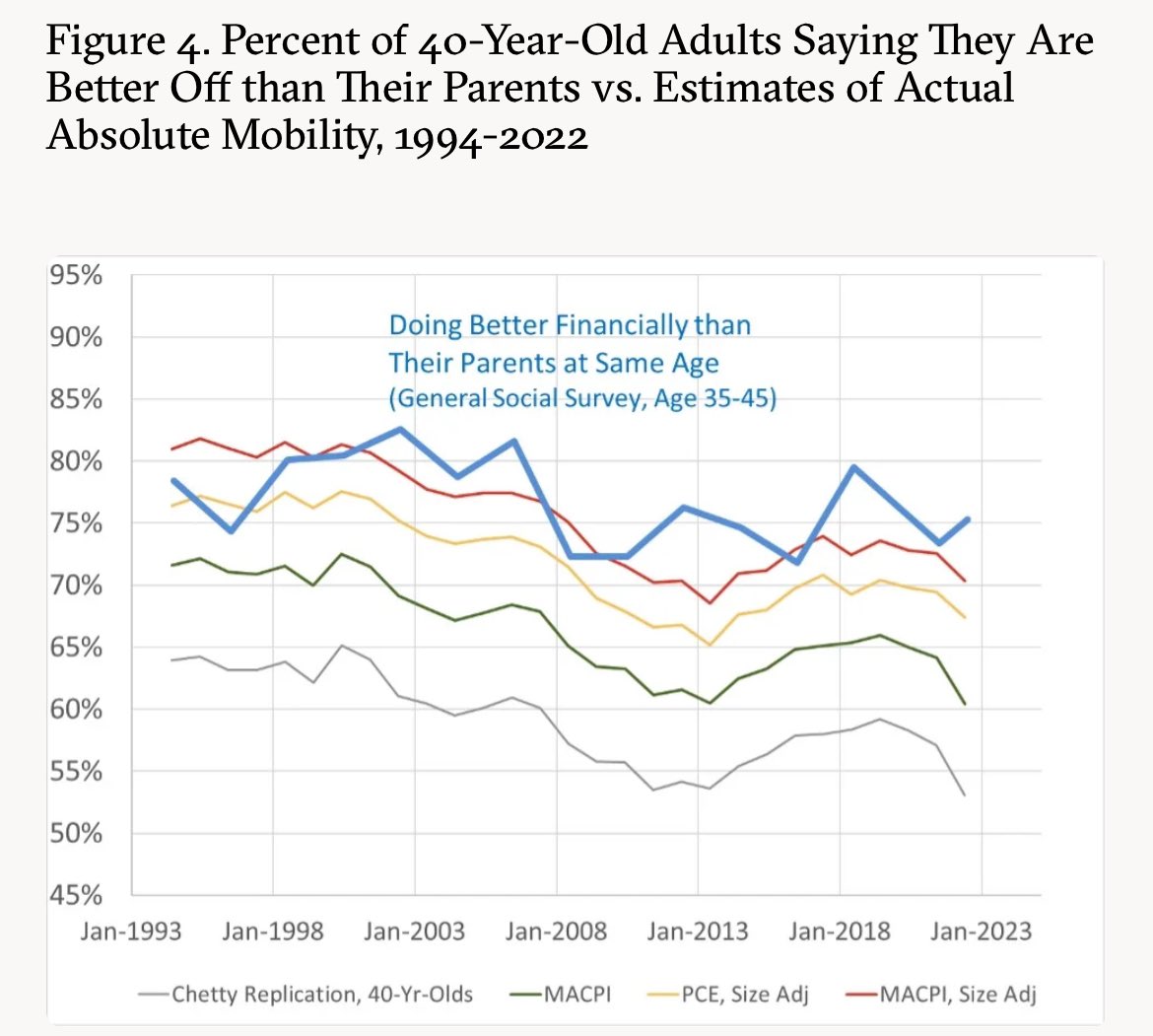
 Declensionists sometimes point to objective measures to argue that we’re going down the tubes. Often, though, they get the details wrong.
Declensionists sometimes point to objective measures to argue that we’re going down the tubes. Often, though, they get the details wrong.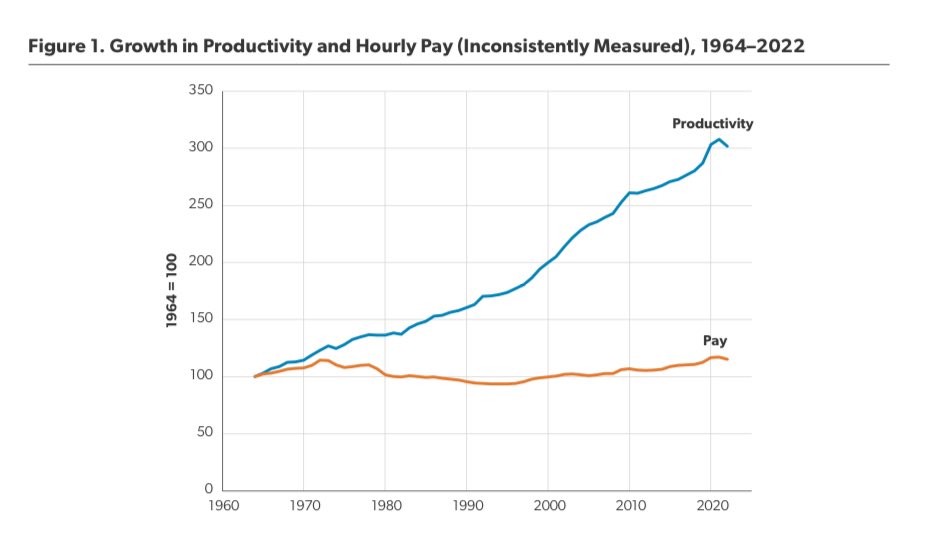
 Another answer, from @EconomicPolicy, also giving the misimpression that pay has lagged productivity:
Another answer, from @EconomicPolicy, also giving the misimpression that pay has lagged productivity: 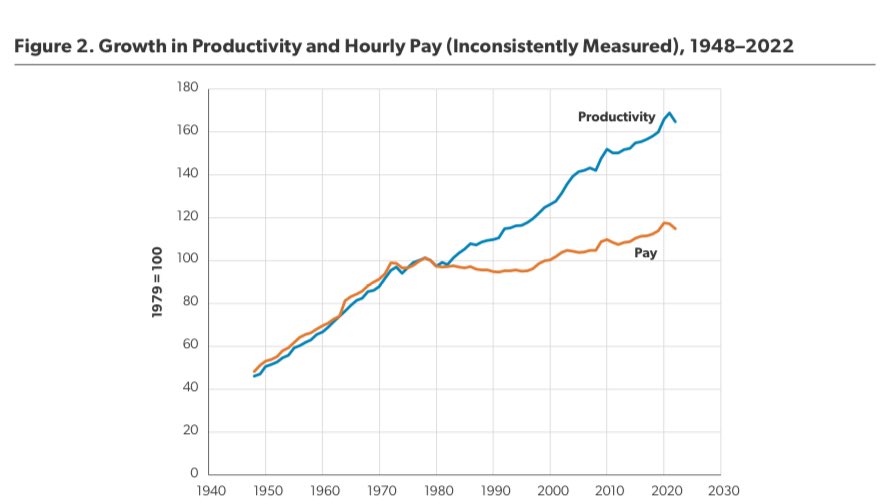

 BTW, those figures exclude employer health coverage and are pulled down over time by the rising share of retirees. Not American Carnage.
BTW, those figures exclude employer health coverage and are pulled down over time by the rising share of retirees. Not American Carnage.
https://twitter.com/paulwaldman1/status/1683533578750050304Universalism is wasteful and bad. Focus narrowly on people in need.

 Obviously wouldn’t explain the pre-1985 rise in the chart, which is also interesting.
Obviously wouldn’t explain the pre-1985 rise in the chart, which is also interesting.


https://twitter.com/AEI/status/1612812986908819460POV:

https://twitter.com/SecYellen/status/1394774999312093191And do not reply that median pay hasn't kept pace with aggregate productivity, which NO ONE disputes. (But we don't know what happened to the median worker's productivity.) This is the equivalent to the amateurish "Did you adjust for inflation tho?" rejoinder.
https://twitter.com/oren_cass/status/1384940225818935297If you want to know why I & others that have spent time studying the question rely on the PCE deflator to measure inflation rather than the CPI-U that Oren and AC repeatedly use for stagnationist claims, please do read the 3,000 words I wrote on it in 2015 forbes.com/sites/scottwin…

https://twitter.com/NiskanenCenter/status/1357345946745507845(In this report, that dismissal appears to be on the basis of a single study of Canadian policy.)